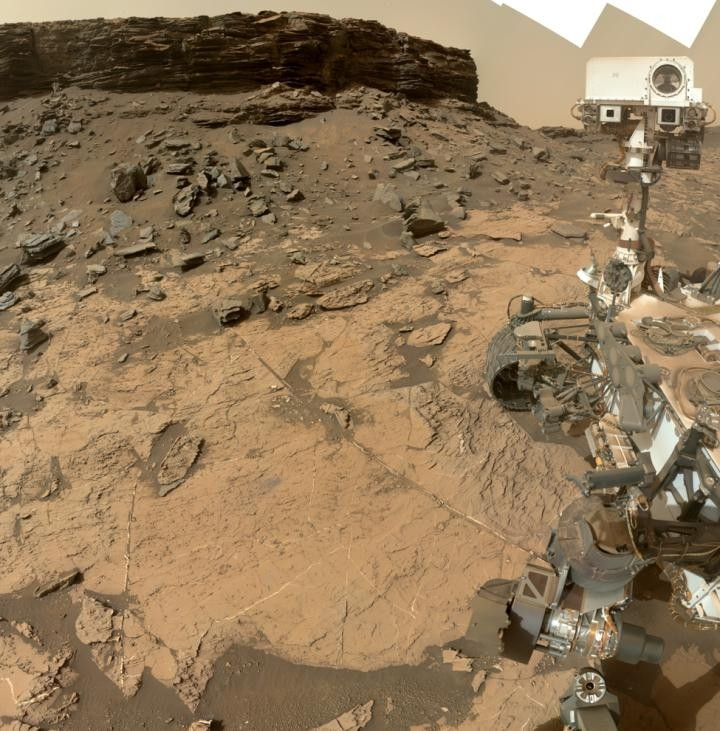Life on Mars: Scientists suggest landing beneficial microbes on red planet to prepare for human arrival
A new scientific theory suggests abandoning decades of practice of sterilising and preventing contamination of alien planets.
Life on Mars has been a long-debated topic among scientists. Researchers are continuously looking for definitive evidence about the existence of alien life. At the same time, questions about the sustainability of biological matter on the red planet still remains unanswered. A controversial scientific new paper suggests that it is possible to infect Mars with life.
Jose Lopez, a professor at Nova Southeastern University and the author of the paper "Inevitable future: space colonisation beyond Earth with microbes first," published the theory in the journal named FEMS Microbiological Ecology.
According to the theory, earthlings can prepare the barren planet for human colonisation by landing microorganisms on the planet. This will help in improving the environmental conditions and make it more like earth, suitable for human survival. The paper reveals that beneficial organisms like bacteria are essential to survive in an extraterrestrial environment.
"To survive in a barren (and as far as all voyages to date tell us) sterile planets, we will have to take beneficial microbes with us," reads the statement accompanying the paper by Lopez as published on Eurekalert.
The idea presented by the paper is in contradiction to the space study protocols being followed by NASA and other space programs for decades. All the space exploration programs have followed strict measures to prevent contamination of alien planets being explored. Nevertheless, Lopez and his team believe that introducing good microbes is inevitable. They must be considered "primary colonists and assets, rather than serendipitous accidents."
"Microbial introduction should not be considered accidental but inevitable," reads the paper. "We hypothesise the near impossibility of exploring new planets without carrying and/or delivering any microbial travellers."
These microbes play a diverse role to support life on earth such as decomposition and maintain the ecosystem. In addition, the study argues that these microorganisms are essential to terraform the planet just the way simple microbes did it on earth, previously. This can contribute vastly to the Mars exploration programs by saving money, time and providing a better insight into the role of the microbiological environment of earth.
The scientists are yet to discover which microbial organisms are best suited for the job. A lot of research needs to be done before the mission is initiated.

"This will take time to prepare, discern. We are not advocating a rush to inoculate, but only after rigorous, systematic research on Earth," said Lopez in the paper.
© Copyright IBTimes 2025. All rights reserved.





















